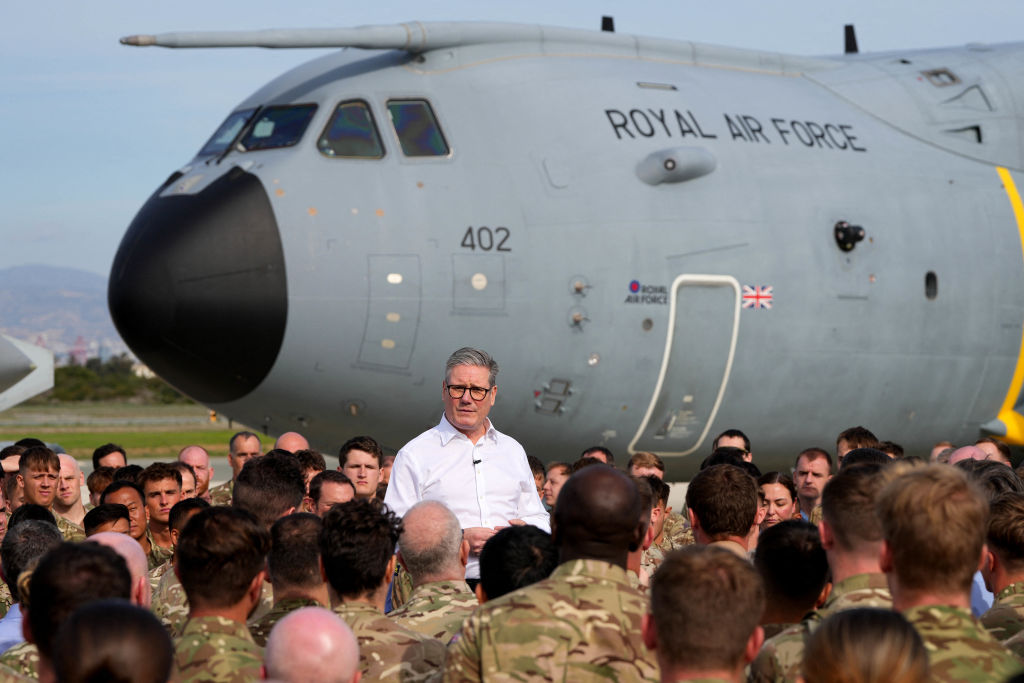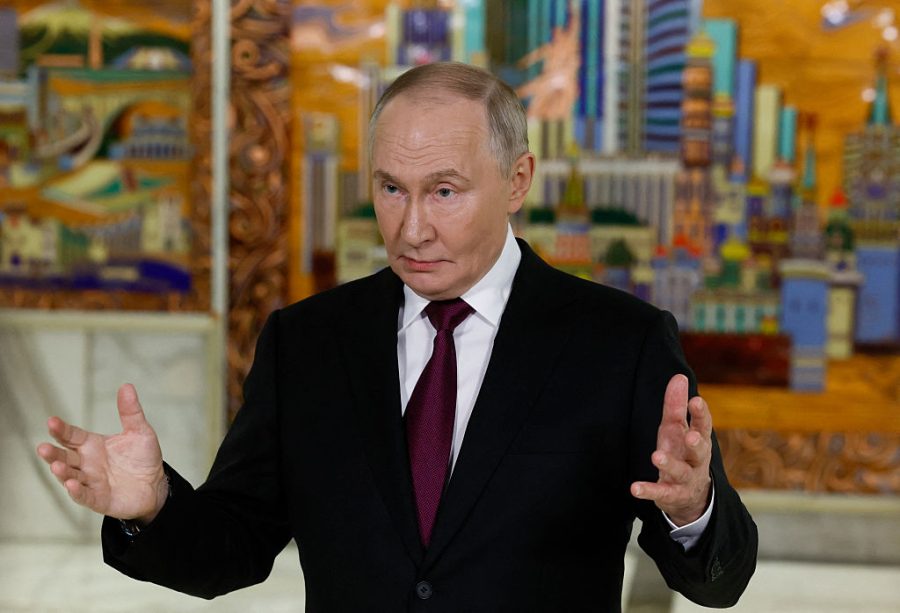The prime minister has told the House of Commons that defence spending will rise to 2.5 per cent of GDP by 2027. The UK already spends 2.3 per cent, so this works out as an increase of £13.4 billion a year. It will largely be funded by substantial cuts to the international aid budget.
It is good that Sir Keir Starmer has got the memo on the desperate need to increase the defence budget. But the memo is dated ‘early 2024’: it was last April, after all, that Rishi Sunak pledged to increase defence spending to 2.5 per cent.
The UK’s current spending is not just inadequate to meet the increasing security threats and technological demands of the future, especially as the United States reduces its commitment to Europe and focuses on the Indo-Pacific region; it is inadequate to sustain the armed forces now. As I wrote here in January, we cannot currently carry out essential tasks: the Army’s main deployable war-fighting formation does not have the equipment or logistical support to be put into the field rapidly. At least three of the Royal Navy’s five Astute-class attack submarines are unavailable for operations while they await repair or maintenance.
The additional resources the prime minister has promised might be sufficient to fill the most glaring capability gaps. Even so, that will take time. His additional promise to increase the budget to 3 per cent of GDP by 2034 is so far away, and contingent on a general election victory, that it is no more than a hypothetical. In effect, Starmer has applied a tourniquet to stop a wound bleeding.
What should the armed forces look like? What should their primary tasks be, and what equipment do they need to carry out those tasks? All of these questions are unanswerable until the publication of the Strategic Defence Review, which will be presented to the government by Lord Robertson of Port Ellen and his team of reviewers in the ‘spring’. (Anyone who has dealt with Whitehall knows that the civil service definition of ‘spring’ has a flexibility that would astonish biologists.) At the moment, the additional money promised by Starmer is in some ways a shot in the dark.
In fact, even 2.5 per cent as a defence target is now seen as inadequate. Mark Rutte, secretary general of Nato, has suggested that member states should be considering a figure ‘north of 3 per cent’, while Donald Trump has mooted 5 per cent, although the president’s estimate is likely to have been snatched unthinkingly from the ether. If we look at reality, however, Poland already spends 4.1 per cent of GDP, Estonia 3.4 per cent, Latvia 3.2 and Lithuania 2.9.
It is no coincidence that those high-spending countries all border Russia. Vladimir Putin is the clear and immediate threat to Europe’s security, as the people of Ukraine are all too aware. If the settlement imposed by the United States after its negotiations with Russia effectively rewards Putin’s invasion, as seems currently likely, the threat will only be magnified.
The increasing Russian menace is accompanied by the certainty that the United States is no longer Europe’s ultimate guarantor of security. Trump, Vice President J.D. Vance and Secretary of Defense Pete Hegseth have all made it clear that Europe must increase its commitment to its own security.
This week Sir Keir Starmer travels to Washington for his first White House visit since President Trump returned to office. He will no doubt present his announced increase in spending as a token of goodwill, an indication that the UK ‘gets it’ and will pull its weight on defence and security. It is hard to imagine Trump, the ultimate transactionalist for whom the bottom line is the only line, being swayed by a 0.2 percentage point increase in spending.
For Starmer though the real unanswered question, and the key to the UK’s future defence policy, is this: what more will the armed forces be able to do with this increased funding? What extra capabilities and missions will be enabled? How will this affect the UK’s contribution to ‘burden sharing’ with its allies?
More money is always better than less. But this modest increase, which will only take effect in two years’ time, is not a game-changer: it does not allow huge new procurement programmes or technological innovations. At best it keeps the UK at the table. If Starmer thinks he is taking a fattened calf to Washington, he may find President Trump’s assessment disappointing.








Comments